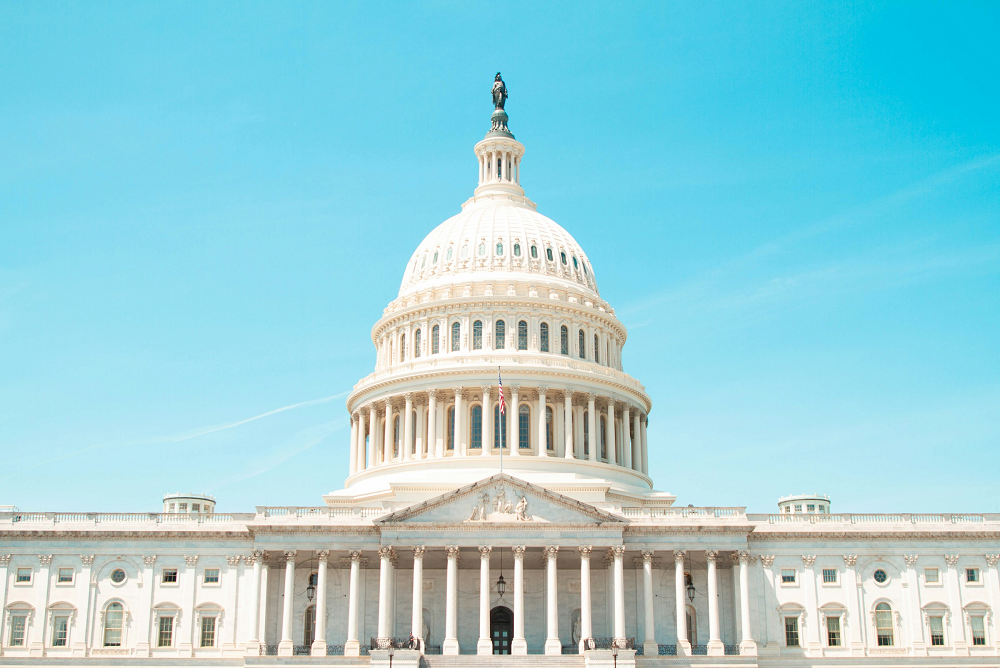ReMA Lauds Introduction of CIRCLE Act to Enhance Recycling Initiatives
On Thursday, July 17, Congressmen Tom Suozzi (D-NY) and Brian Fitzpatrick (R-PA) introduced the bipartisan Cultivating Investment in Recycling and Circular Local Economies (CIRCLE) Act. If passed, the bill would establish a targeted investment tax credit to strengthen the U.S. recycling infrastructure and bolster domestic manufacturing and reduce waste sent to landfills and incinerators.
“We can’t talk about building a 21st-century economy without investing in 21st-century recycling infrastructure,” Fitzpatrick said. “The bipartisan CIRCLE Act tackles this head-on—providing a new investment credit to help communities like ours in PA-1 modernize outdated systems, strengthen domestic supply chains, and compete globally. It’s a fiscally smart, environmentally responsible solution, and part of my broader effort to grow our local economies and protect our environment, our workforce, and the future we owe our next generation.”
The CIRCLE Act establishes a 30% investment tax credit—phased out over 10 years—for qualified investments in new or upgraded recycling infrastructure. Municipalities investing directly in waste reduction efforts will receive a direct rebate, ensuring local governments can modernize without passing the burden on to taxpayers.
“Before coming to Congress, I was Mayor and a County Executive,” Suozzi said. “Oftentimes, local governments bear the burden of operating waste management programs, having no choice but to pass those costs on to constituents in the form of taxes. Making it easier and cheaper to recycle saves local governments and taxpayers in my district, and all over the country, up to $9.4 billion as less and less recyclable waste unnecessarily goes to costly landfills and incinerators. Bringing down the cost of living by reducing waste, all the while creating jobs in the recycling industry, is a no-brainer.”
According to industry estimates, investments incentivized by the CIRCLE Act could unlock over $30 billion in economic value, generate more than 200,000 jobs, and prevent 169 million tons of recyclable materials from ending up in landfills—all while saving taxpayers nearly $10 billion.
Benefits of the Recycling Infrastructure Investment Tax Credit:
- Strengthen Domestic Supply Chains: Estimated to return $8.8 billion in valuable materials that can be used throughout the U.S. economy, including in new packaging and products. Better recycling will reduce the need to import materials, ensuring the U.S. has the resources to grow the economy without relying on foreign nations.
- Create American Jobs: Investments in recycling are investments in domestic jobs. A fully developed residential recycling system could return over $11 billion in new wages and 200,000 jobs across the nation, including haulers, truck drivers, machine operators, engineers, and more.
- Advance American Manufacturing: Across all materials, recycled commodities account for 40% of manufacturing inputs. With additional sorting and processing capacity, including advancements in AI, machinery, and emerging technologies, recycled materials can account for a larger share of manufacturing inputs and be applied to a larger set of applications.
- Reduce the Burden on Local Governments: Local governments often bear the cost of operating waste management programs and pass those costs on to taxpayers. By making it easier and more cost-effective to recycle, local governments and taxpayers could see $9.4 billion in savings as fewer materials are sent to landfills or incinerators.
- Support Rural and Urban Communities: As infrastructure expands, more communities—and especially rural communities—will gain access to recycling services. Services that were previously inaccessible, often due to their distance from transfer stations or material recovery facilities. Incentivizing investment will expand the needed infrastructure and make recycling services more accessible to all communities across the U.S.
The bill is backed by a broad coalition of environmental and industry leaders, including The Recycled Materials Association (ReMA), The Recycling Partnership, World Wildlife Fund, the Aluminum Association, the Association of Plastic Recyclers, Keurig Dr. Pepper, and more.
“Manufacturers rely on recycled materials for a significant portion of their raw material needs, and the CIRCLE Act is a smart, targeted approach to strengthen and grow America’s recycling infrastructure to ensure the recycled materials industry can continue to support American manufacturing,” said ReMA President Robin Wiener. “By offering a 30 percent tax credit for investment in recycling infrastructure, equipment, and technology, the CIRCLE Act will help unlock private capital, drive innovation, increase material recovery, and help scale domestic processing capacity. We urge Congress to pass this critical legislation and send a clear signal: recycling is not just good policy—it’s essential to American prosperity.”
Photo by Caleb Perez on Unsplash.
